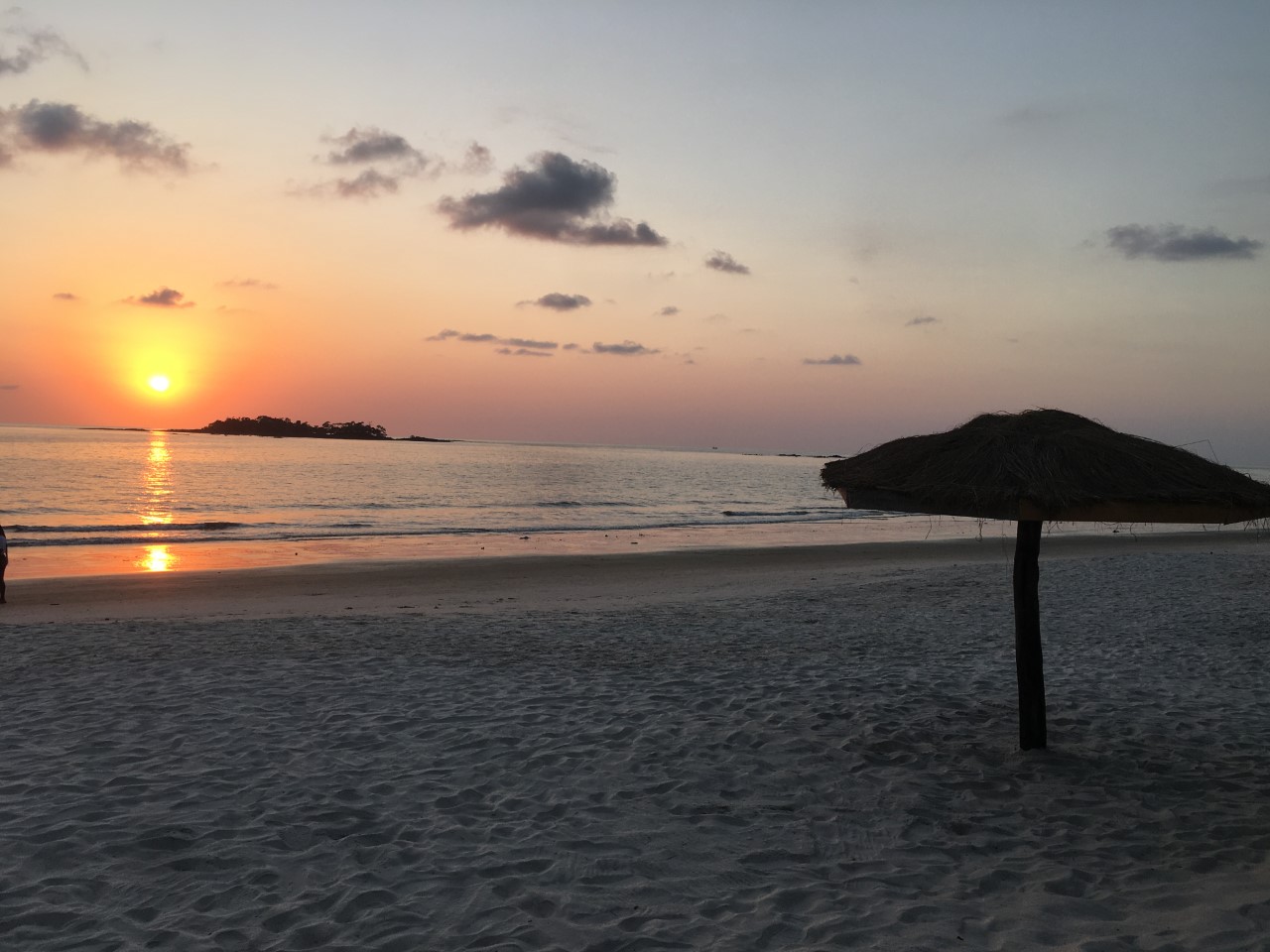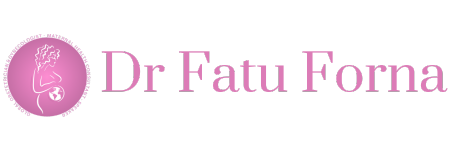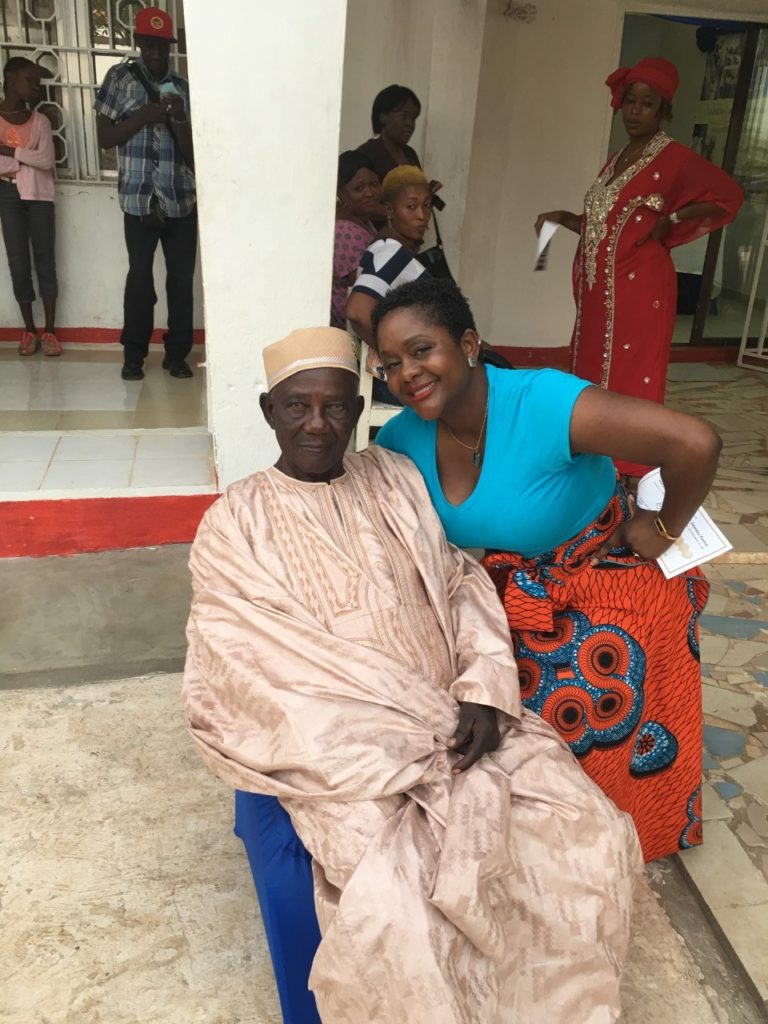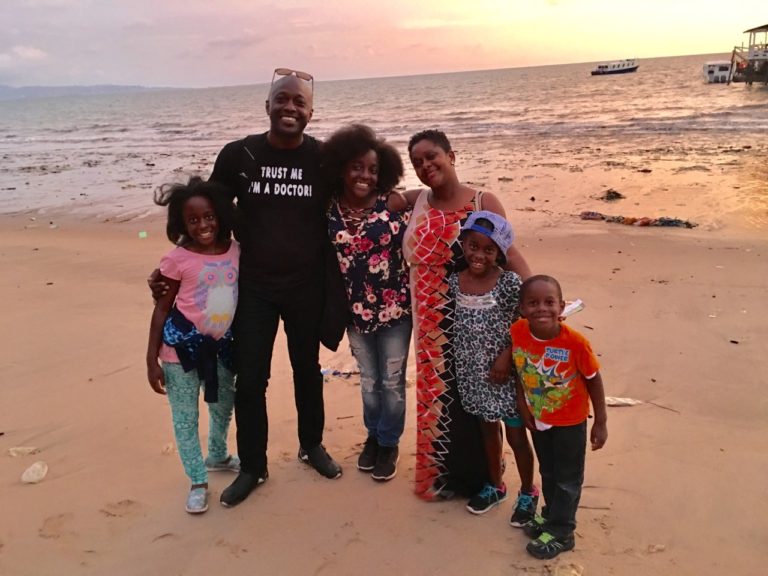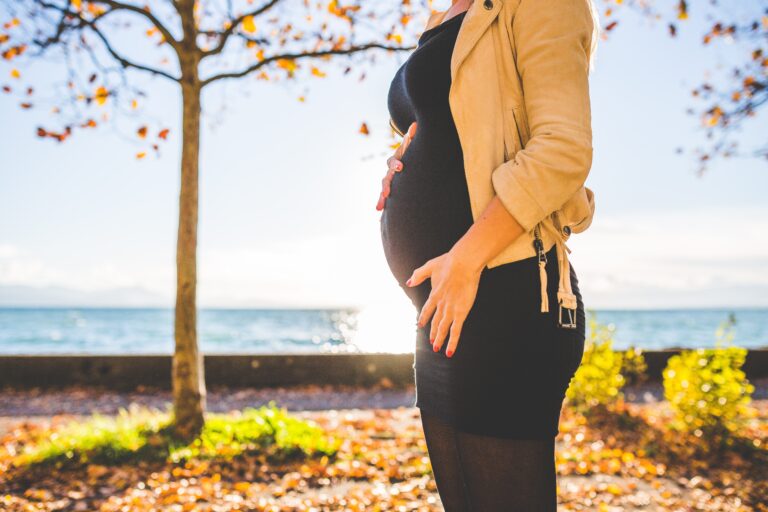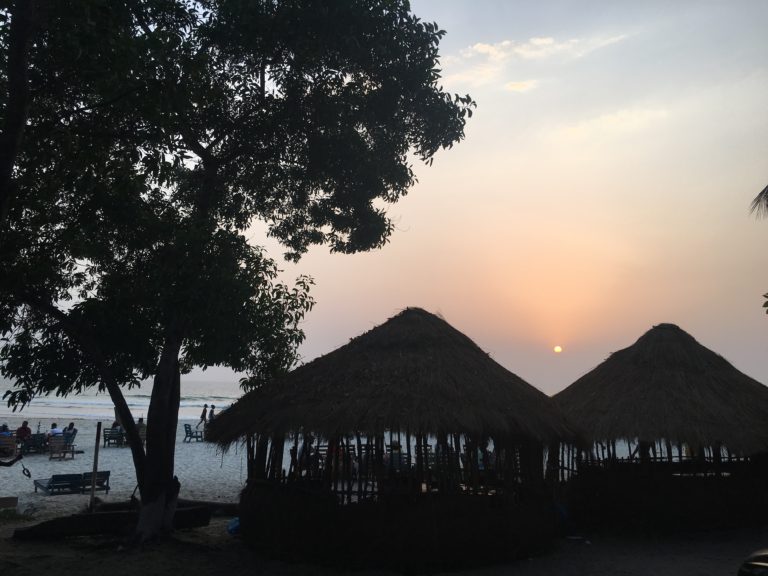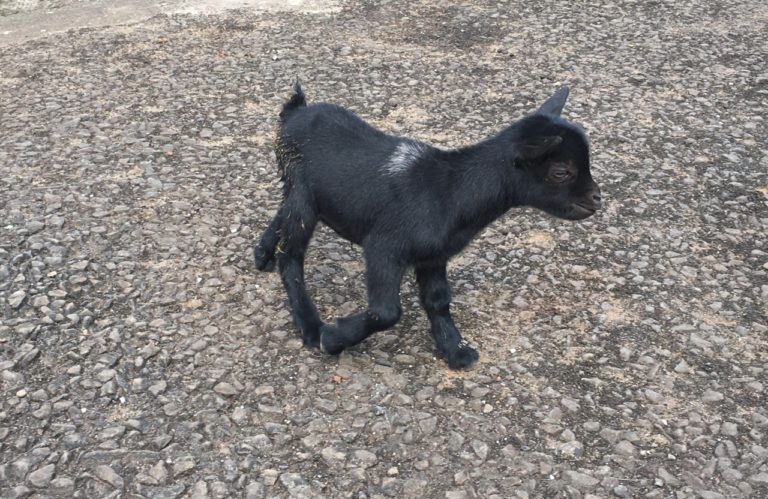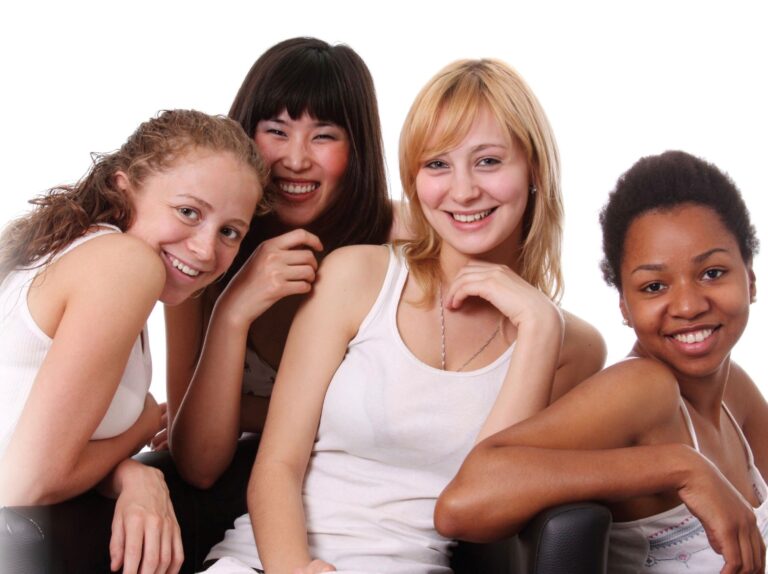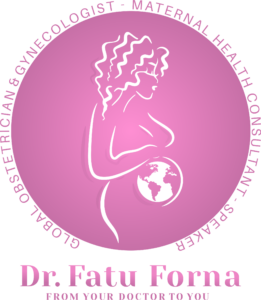I’m sorry, you both have COVID!
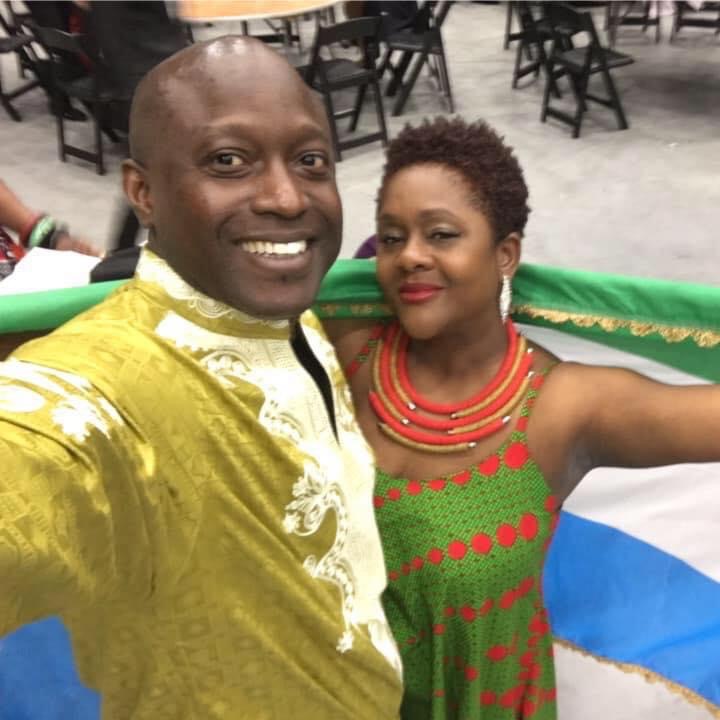
“I’m sorry, you both have COVID. You and Shekou’s tests were positive”.
My heart sank and my blood ran cold. I felt pure terror.
Shekou was looking at me and he knew immediately.
I could barely hear what my colleague on the phone said next.
He asked about our symptoms.
About how we were feeling.
That the surveillance team would come see us in the morning to review our contacts.
That we would be placed under isolation and that our household would be quarantined.
That a medical team would check on us in the morning.
All I heard was that we both had COVID. And then my brain went haywire …
What about our parents?
What about all our contacts over the past week? All the people we had met! All the doctors in a country with so few of them!
What about our kids? Would we be allowed to go back home on our flight? What would happen if we got severely ill and died, far away from our kids?
What about the medical care? We knew the challenges – no convalescent plasma, no Remdesivir, no investigational drugs, no high-tech intensive care units!
If we got sick sick, we were screwed.
My head was spinning!
I hung up the phone and looked at Shekou. “We both have COVID”!
Shit. Shit. Shit.
I don’t usually curse but the curse words flowed. To mask the fear. To numb the sadness.
Not that we thought this was impossible, Shekou and I had both been caring for patients with COVID-19 over the past few months in the US, and we knew the risks, but we had the appropriate PPE so we were pretty confident that patient care was low-risk.
We were more afraid of the risks of travel, but CDC had just designated Sierra Leone as one of the few countries in the world, and one of only four in Africa where the risk of COVID-19 transmission was low, so we felt ok about the risks.
I travel to Sierra Leone multiple times a year supporting the Ministry of Health to improve maternal health, and had planned this December trip months ago. Shekou was joining me this time, as we also had to launch something that was a manifestation of our life’s work.
I am an obstetrician/gynecologist and epidemiologist, and Shekou is a pediatrician. We both moved to the US as teens, but being from Sierra Leone, we navigated the world acutely aware that our home country had very high maternal and child mortality. Our lives revolve around how we can improve health for women and children in Sierra Leone, and in 2008, we founded the non-profit Mama-Pikin Foundation to help us do this work. We moved to Sierra Leone for two years in 2017—me to lead the Reproductive and Maternal Health unit at the World Health Organization, and Shekou to lead a new UNICEF-funded Special Care Baby unit at the referral pediatric hospital.
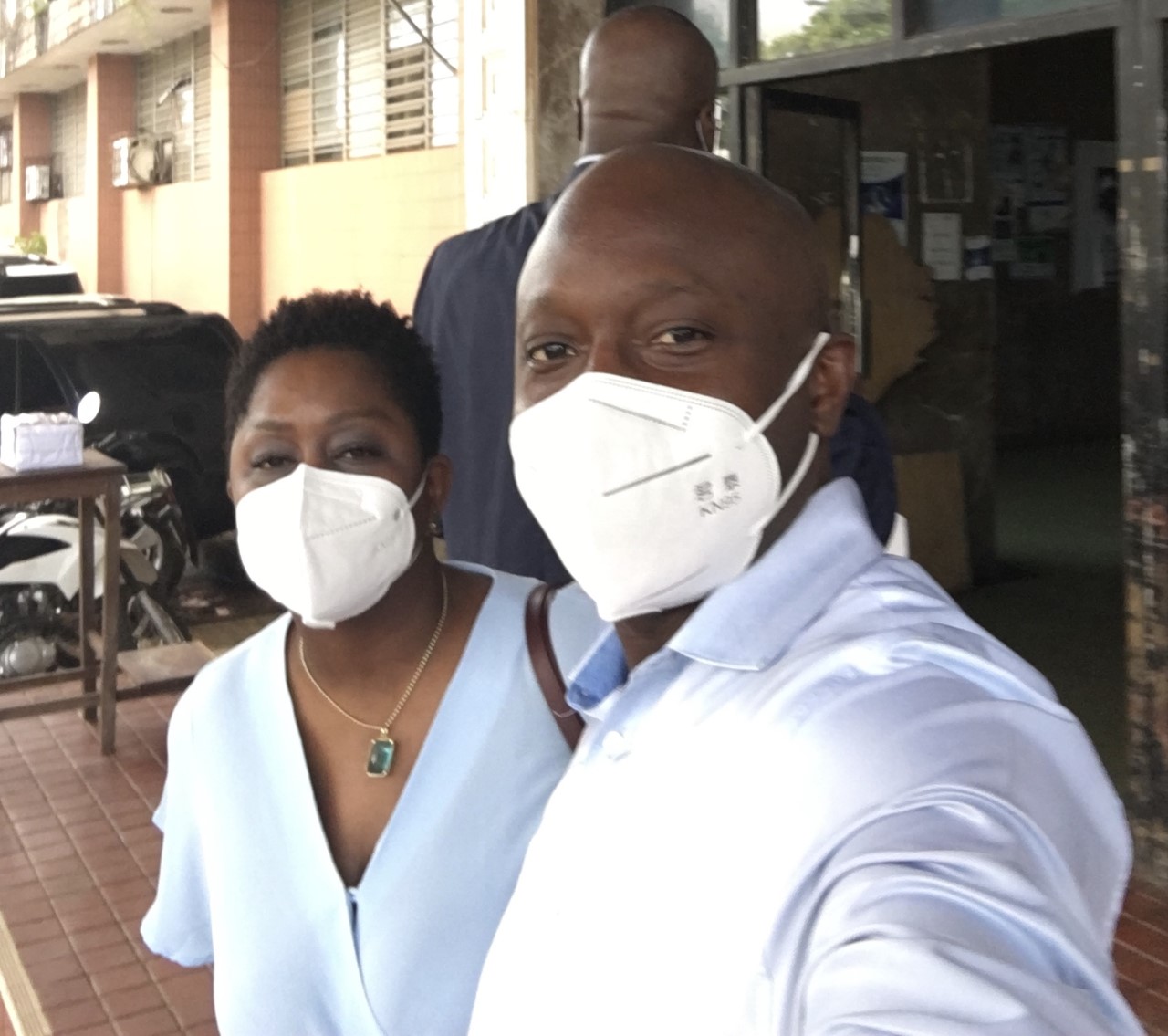
Our foundation was just awarded a $3.85 million grant to support the Ministry of Health to start a postgraduate training program in obstetrics/gynecology and pediatrics. This initiative was really going to transform the health of women and children, as there were less than 10 pediatricians and obstetrician/gynecologists in the entire country! We had been working on this proposal with the Ministry of Health and the Freetown City Council for close to a year and it was time to launch – we couldn’t postpone this until the end of the pandemic. We had traveled to Sierra Leone during the pandemic before and we knew that there was some risk, but our mothers and babies couldn’t wait!
So we took the risk—we took 2 COVID tests instead of the recommended 1 test before we left, we wore our masks, and did the sign of the cross when we took our masks off on the plane to eat and drink during the 26-hour trip. We were so happy when we arrived and realized that COVID testing at the airport had been moved outside – the last time I came it was done in a small room within the airport and I complained about the lack of ventilation. Then we headed outside and realized that testing would be done in a container lab with a tiny window, instead of in the open air. In retrospect, we should have fussed and asked to be tested outside, but we complied and got our 2 tests—a blood antigen test and a nasal PCR test—in a small room with no ventilation, where two people were tested simultaneously and where the multiple people that came on the flight were all tested within 1-2 hours.
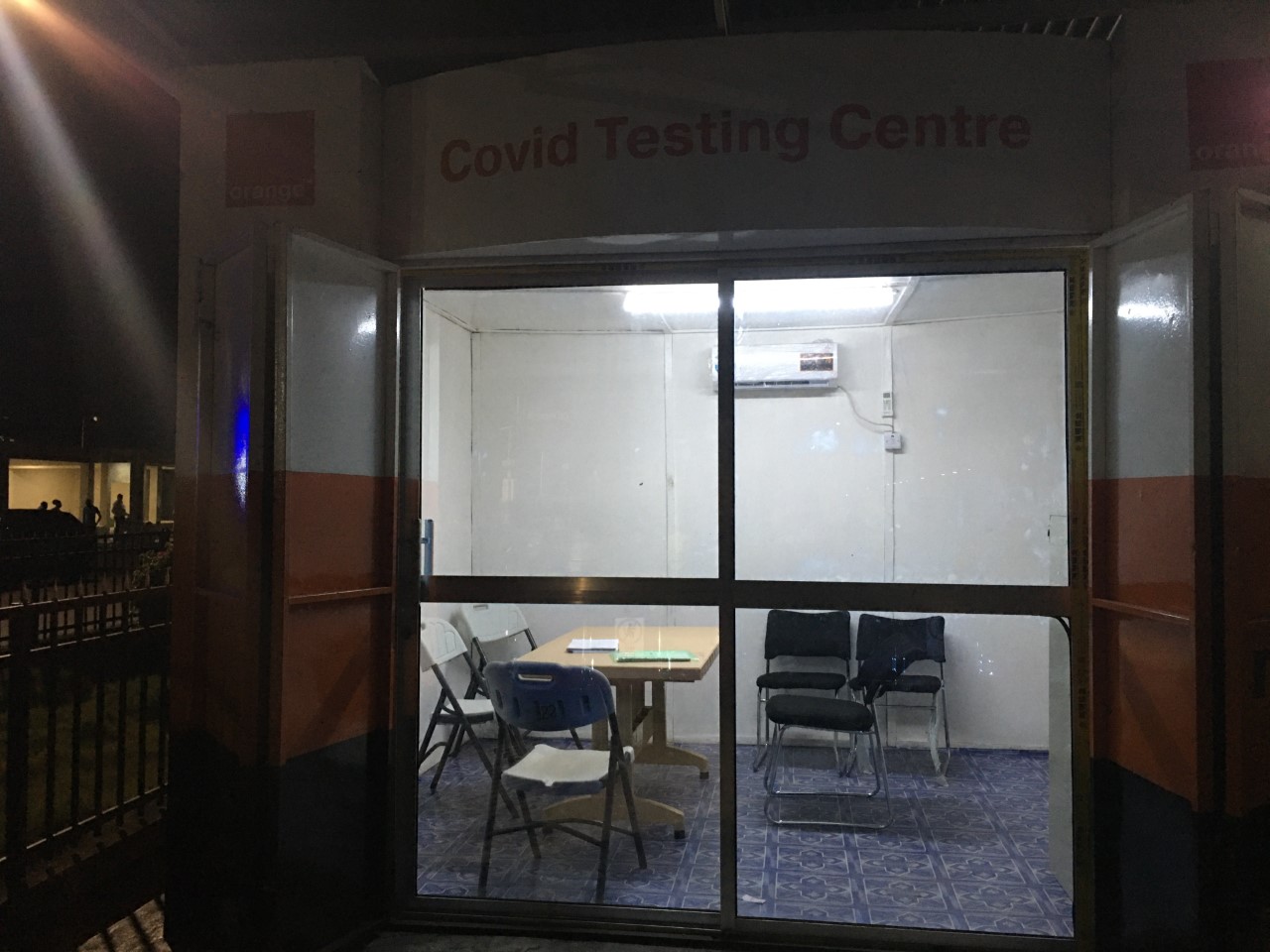
I said to Shekou “Ayyy Papa God. If anybody get COVID nar yah, we all dae get am”. But we were happy to be home and we took our tests without fussing, got on the ferry and made it home.
The next week was busy, meeting with folks in the Ministry of Health and the postgraduate college and the Freetown City Council. Meeting with doctors in the hospitals and planning the launch.
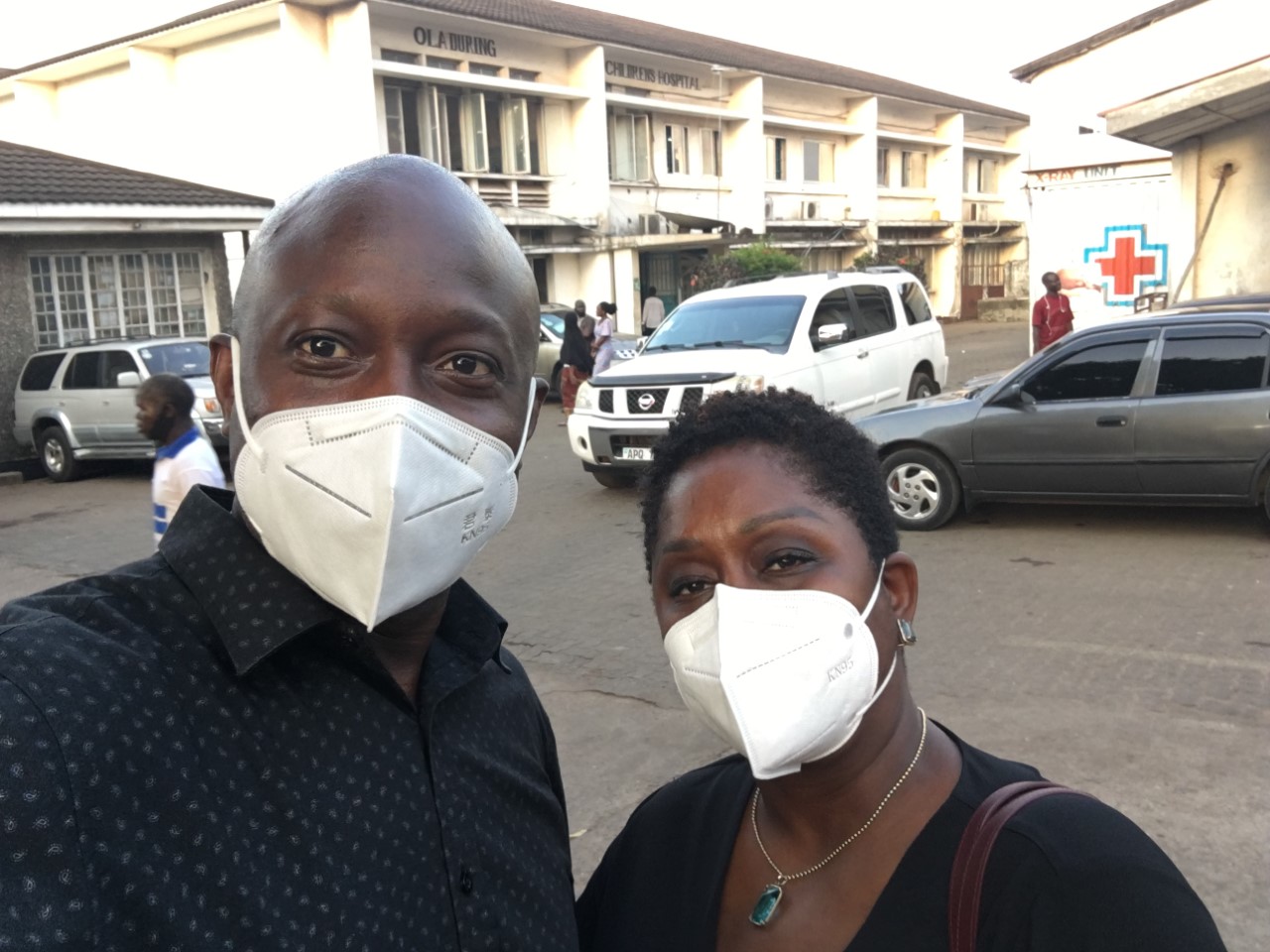
Our 2 COVID tests at the airport came back negative. We wore our masks everywhere including at home, diligently. We even got teased because there was very little COVID in the country, only 1-2 people a day were testing positive, so folks had gotten lax. “Una serious about dis mask, eh”! We would laugh and say “Enti you know say we comot America, the land of COVID”! Folks were cool and we would bump elbows and move on.
But … we took off our masks to eat with our parents. Outside, on the veranda.
And … we took off our masks to talk on the microphone during the launching ceremony for the event.
Every other time, our masks were on, except those two times.
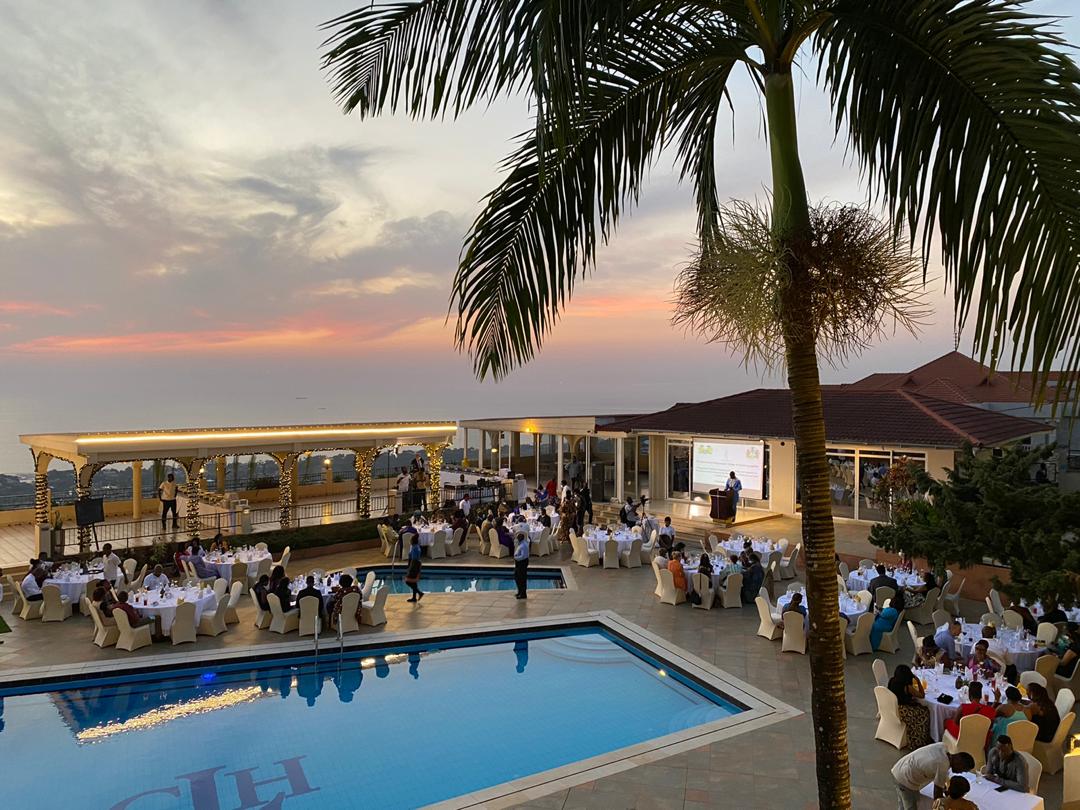
After the launch, we were exhausted. It went well. We had been working on it the whole day—setting up, presentations, press interviews—we didn’t even get to eat until about 10pm, when everything was done. We went home exhausted and crashed.
The next day I was tired and my body hurt. So bad, that I took ibuprofen. I told myself—I just overdid it. The following day, we had meetings at the hospital—masked. We got home and Shekou was tired and his body hurt. He felt warm.
Shit!
He took his temp. 99 degrees Fahrenheit.
Shit!
He said “I’m sure it’s nothing, I’m just tired!”
But we knew. He took it again later that night. 100.2 degrees Fahrenheit!
I started crying. I called my colleague who was over testing and he arranged for us to be tested at home first thing in the morning and assured us we would get results the same day.
We stayed home and converted all our meetings to zoom. The lab tech came in the morning and swabbed us on the veranda in the middle of zoom meetings.
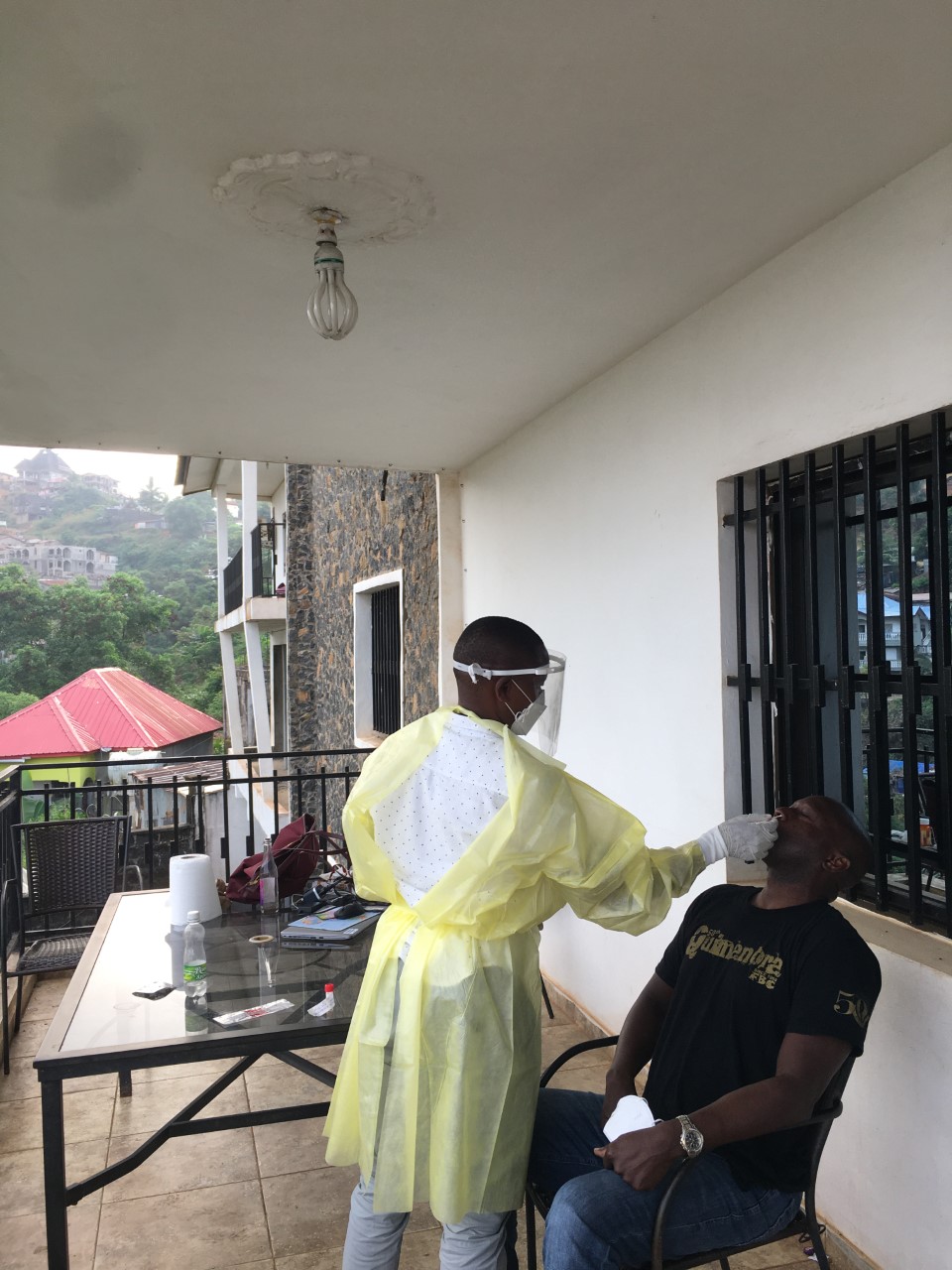
Shekou then became febrile again that morning and went to bed. He felt like he had malaria—a fever, body aches and tiredness. I was just overwhelmingly tired with body aches. No cough, no shortness of breath—thank God.
So, when we got the notification that our tests were positive later that night, we worried about our parents, and we worried about our contacts, and we worried about our colleague doctors.
Could we have gotten infected in the US and then brought COVID-19 with us to our beloved Sierra Leone?
Did we pick it up on the plane?
Did we get it during testing at the airport lab?
What did this mean for the other passengers on the plane?
Because we tested positive about a week after arrival, and because our initial tests were negative, we thought we probably picked it up during travel or on arrival, but there is no way to know for sure. Most people have symptoms or test positive about 4-7 days after exposure, but it could take longer.
We were so worried about the possibility of our parents getting sick and dying from an infection they caught from us.
We felt guilty for exposing our families and colleagues to this dreaded virus—it was overwhelming.
We started notifying our close contacts that night. Calling and saying “I have bad news. I’m so sorry, we have COVID and we exposed you”! So many people had to cancel their work and go on quarantine! My sister was supposed to travel from Atlanta the next day—she had to cancel her trip.
The next day, the surveillance team came and painstakingly went over names and places and contacts from the past 3 days. It was a large team of seven surveillance officers—which made us even more scared! They tested everyone in the entire house.
And then we noticed the truck full of army and police personnel drive into our compound!
“Oh, by the way, the house is under quarantine… for fourteen days. We will leave the guards here. No one can come in or go out”!
Shit got real.
We joked with our guards from afar. They brought their stuff and made themselves at home in the compound.
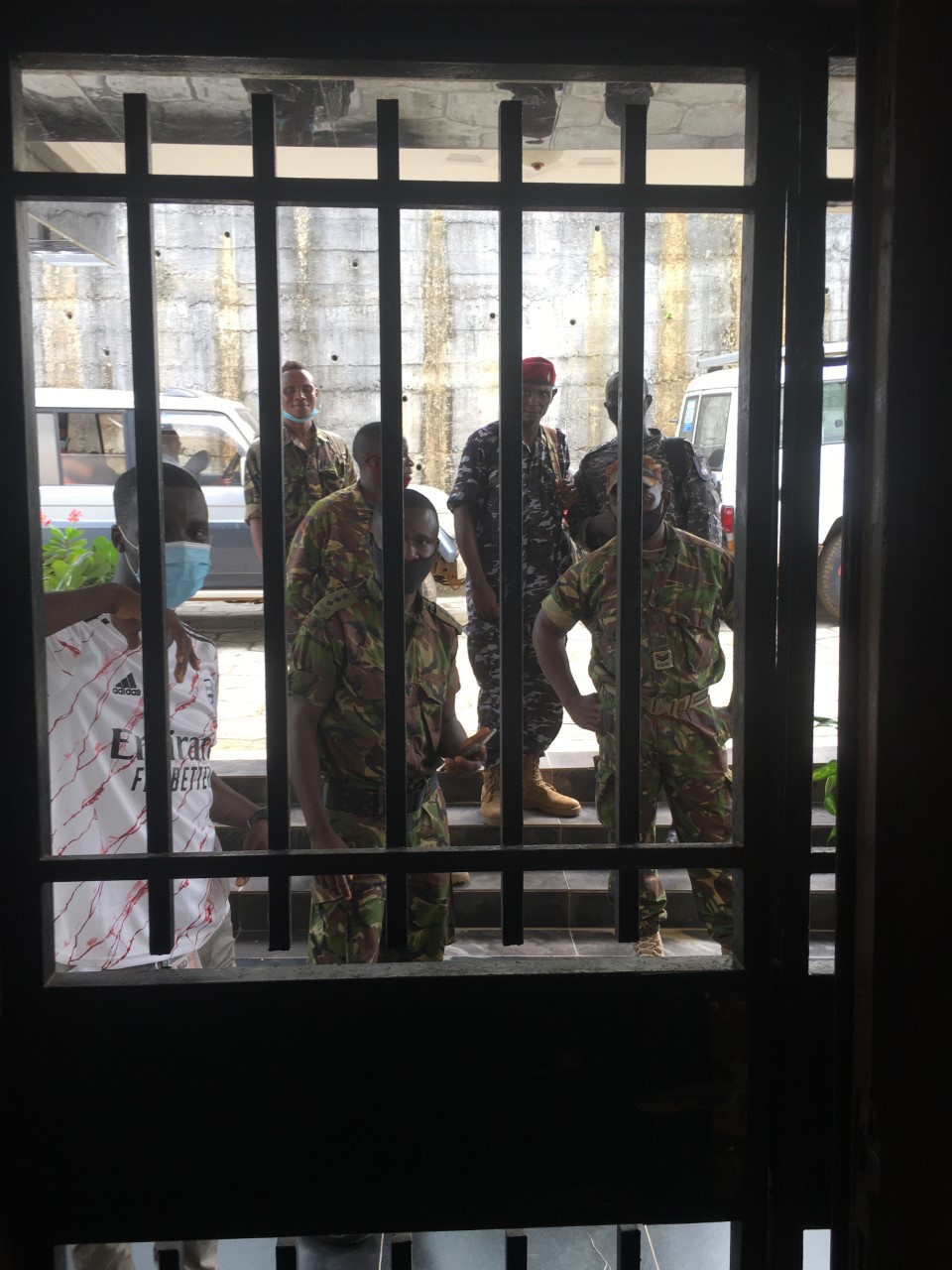
The quarantine team brought us provisions—a bag of rice, 2 bags of coal, fish, palm oil, beans, oil, milk—we were in this for the long haul. The cook made arrangements for her sister to go to the market and drop off things we needed at the gate.
My work colleagues made sure we got everything we needed—a pulse ox, a BP machine, a thermometer. They checked on us every day.
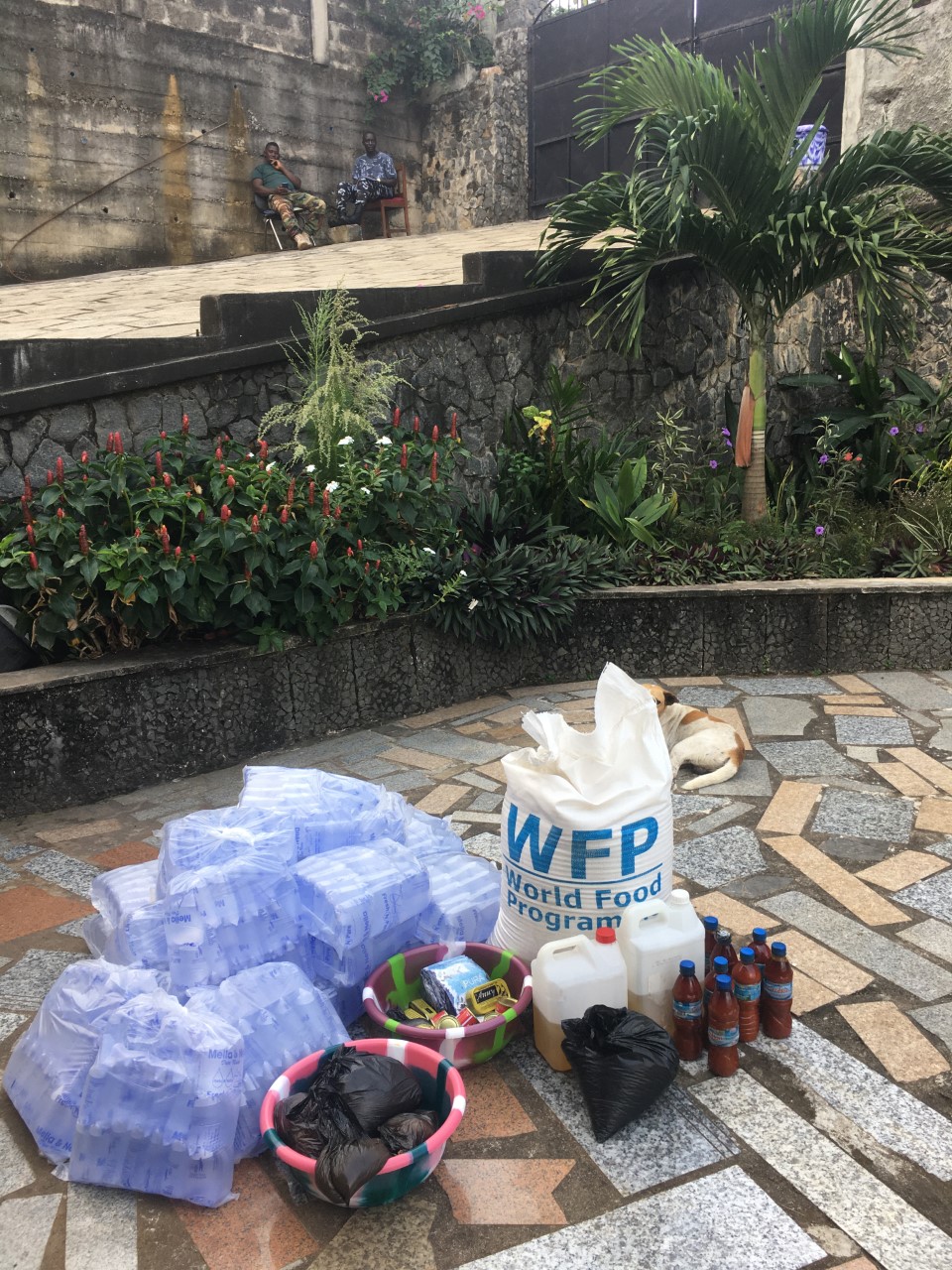
The National Covid-19 Emergency Response Centre (NaCOVERC) medical team had us report our vitals twice a day to make sure we didn’t need hospitalization.
So we settled into a routine—wake up, shower, eat, sit on the veranda and work remotely until sundown. Eat, stretch, shower, then go to bed.
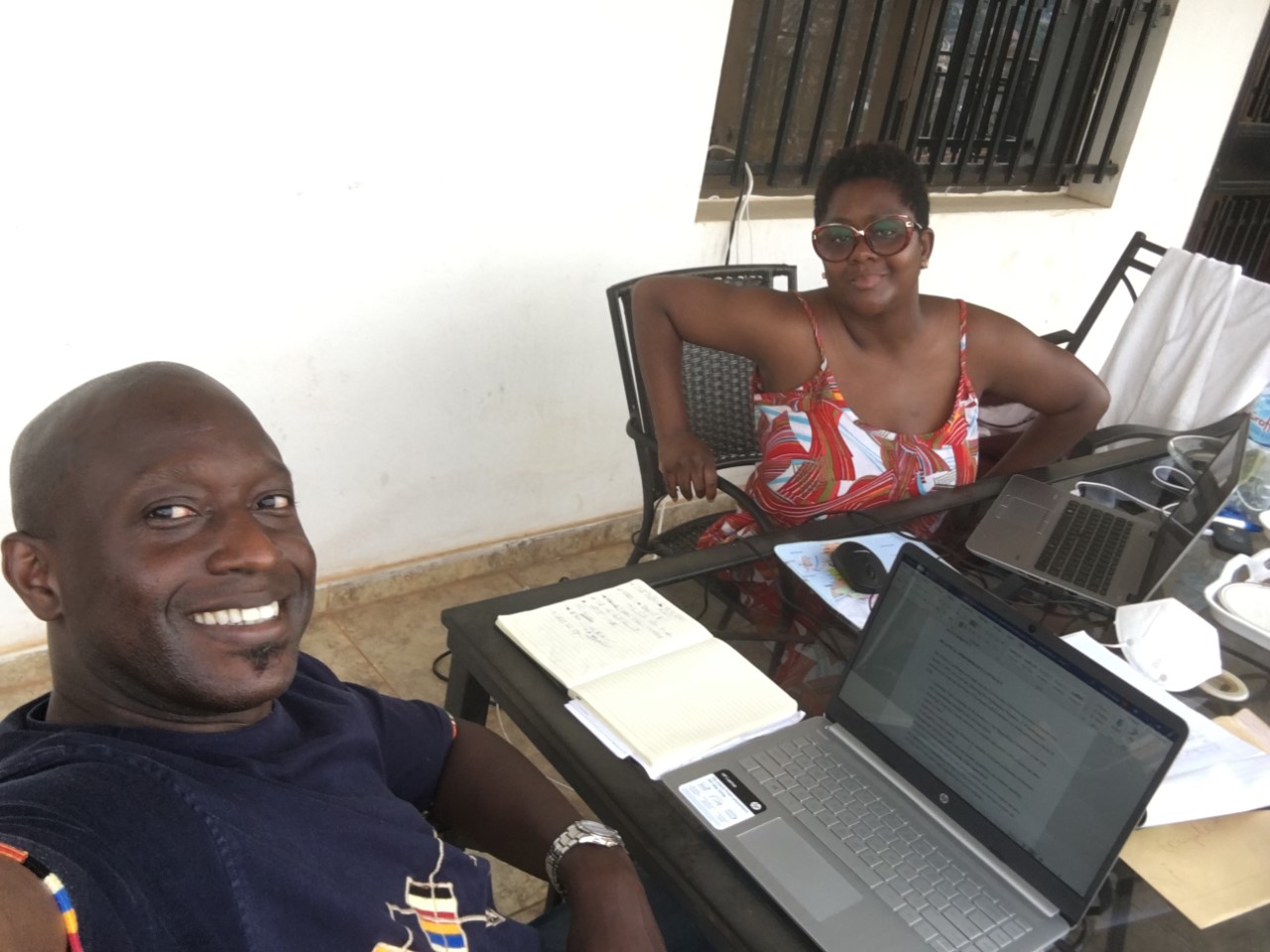
We prayed that we wouldn’t get sick sick! That our symptoms would stay mild.
I spent some nights crying over Shekou as I watched him toss and turn with fever—paralyzed with fear—worried about the unthinkable…
Our families and our doctor network in Sierra Leone and in the US sent us tons of advice about what we needed.
Vitamin C, Aspirin, Zinc, Chinese menthol liquid water for heated vapor inhalation.
Sunlight.
Prayer.
We did it all. We were determined to not get sick sick.
We worried about our parents and checked on them every few hours.
NaCOVERC pulled out all the stops for us—they checked on us, listened to our concerns, and launched necessary investigations. We were thankful that maybe the silver lining in all this was to improve processes for the influx of passengers who would be coming home for the Christmas holidays—we were hopeful that the testing processes would change at the airport.
They tested all our contacts and we danced every time we got a negative notification. Especially for our parents. Given their ages, we had been sick with worry.
I reflected on all the work that we needed to do that we couldn’t do. About the fact that we all need good health, because if you are sick, you cannot function. We had so much work to do in Freetown and up country, but we were sidelined by our health and had to cancel nearly everything and stay home.
I reflected on all the fun we were missing out on. We could no longer climb Leicester Peak or walk by Lumley Beach for exercise after work. We could no longer go visit all the amazingly beautiful beaches on the Freetown Peninsular with gold sand, white sand, and black sand, over the weekend. We couldn’t visit friends and family or go to events. We just watched pictures of others having fun from our quarantined house.
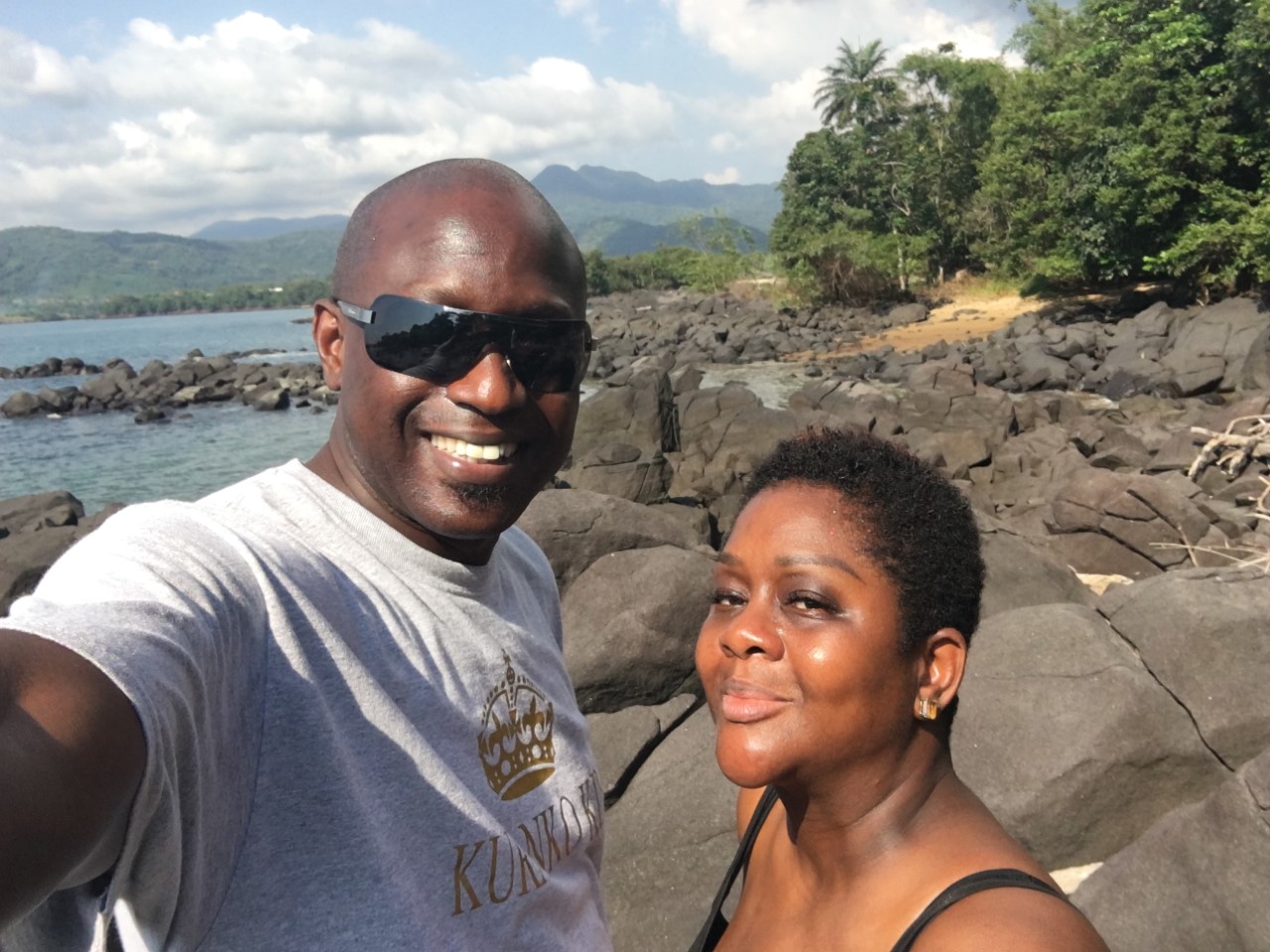
I had time to think about how we nar callo callo pipul dem. To God … we callo callo! Ah dae write pan Krio so nar to we to we normor! Ah find out say pipul dem bin dae take pass pan de quarantine!
“Wae Sorie?” “Ee don go up road, ee go buy bread”.
“Wae Fatmata?” “Ee go buy buy nar market quick”.
“How”? “Enti we dae pan quarantine”?
“Ayyy, mummy, dem take pass, ma”.
Thank God they were people we had not interacted with!
Plus we constantly had to remind folks, “Bo werr u mask, bo”. “Bo coba you nose, bo”. “Bo nor cam insai, nar quarantine ose dis”.
Ar tire wit Salone man callo callo!
I had time to think about why we need to continue working to help strengthen our health system because health impacts everyone, whether you are rich or poor, live in Sierra Leone or live in the diaspora. This pandemic has reminded us that airports can shut down forcing rich people to seek care at home, in the same hospitals they had neglected. Diasporans still have loved ones at home, or they can get into an accident or fall ill while visiting home. We are all impacted, and our country cannot reach her full potential if her people are in poor health.
I thought a lot about putting country first. If we all contribute in our own small areas, we will move the country forward. If we cut corners or mismanage resources, we will all be impacted in some way. We can’t leave everything to the government and blame them for everything—we all have a part to play, even as individuals. So, no matter the frustrations, we must keep pushing forward.
Some days we feel better and some days we feel worse, but we are hoping and planning to get repeat negative tests so we can return home to the kids soon.
We are hoping and praying that we will be able to return home before Christmas.
We haven’t told the kids about the infection yet because we don’t want them to worry that we will die.
But we made videos for them… just in case something were to happen. We recorded messages … just in case.
So, as we await our return home to our kids, we are humbled and blessed to have had mild COVID-19 disease so far, as we know how deadly this disease can be for young and old alike. We know that we are not out of the woods yet, as this disease can have twists and turns and long-lasting complications, but we are thankful for this blessing.
We are thankful for the care that we are receiving from our families, our colleagues at work, and NaCOVERC.
We are humbled and thankful that so far, we have not transmitted this horrible disease to anyone and we are sorry for the trouble and anxiety we have put our family, friends, and colleagues through, and for the disruption this has caused in their work and lives.
We are thankful that a vaccine has been approved and we cannot wait to get it so that we can be do our part in helping the world eradicate this disease.
Finally, we are strengthened in our resolve to continue to put country first and to press on with the work to improve health in Sierra Leone by training our doctors, midwives and nurses, because without health, we cannot realize our full potential.
